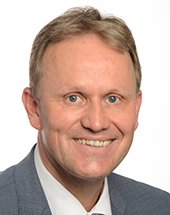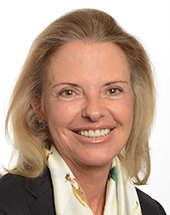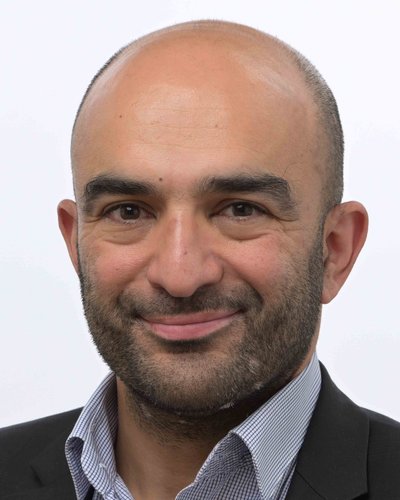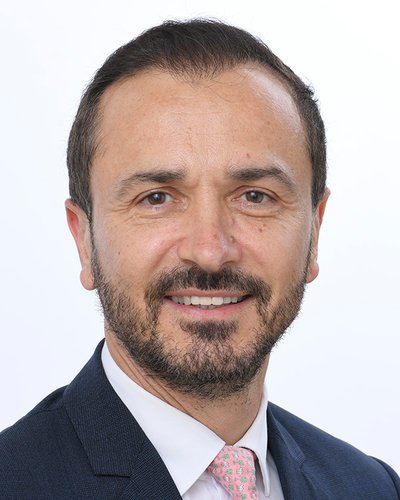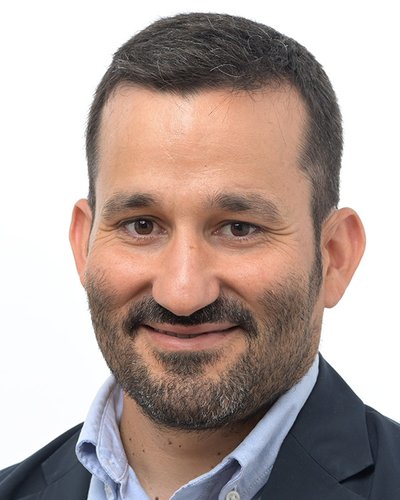OPP Meeting Summary: EP TRAN Committee - Public hearing on Passenger rights (18 November 2024)
A summary of the public hearing is now available.
Key takeaways from the hearing on the Enforcement proposal
- It was highlighted throughout the hearing that passenger rights enforcement across the EU faced challenges related to fragmented regulations, limited enforcement, and lack of clarity on roles and responsibilities. Key recommendations to address these included:
- Providing NEBs with sufficient resources and powers to enforce compliance;
- Clearly delineating the responsibilities of players along the value chain, particularly operators and intermediaries, concerning, among others, reimbursements and data sharing requirements;
- Mandating ADR participation for all stakeholders.
- Harmonisation of oversight, transparency, and redress mechanisms was needed to ensure passengers received equitable treatment regardless of their location or mode of travel. Key recommendations from the hearing included:
- Establishing unified rules for claims filing, refund timelines, and enforcement across all modes of transport;
- Ensuring consistent penalties and monitoring mechanisms for violations.
- Issues affecting PRMs highlighted a gap between legislative intentions and practical enforcement. Key recommendations included:
- Guaranteeing full liability for damaged equipment and standardising PRM-friendly measures;
- Ensuring data collection and disclosure on PRM complaints, similar to the U.S. system.
- The role of innovative technologies, digitalisation and automation featured in the hearings, with some speakers advocating for simplified refund and complaint processes using technology to minimise delays and improve consumer experience.
Key takeaways from the hearing on the Multimodal proposal
- Some of the key challenges to fostering multimodal passenger rights identified during the hearing were data accessibility, SMEs and small operators, refunds and reimbursements, and technological integration.
- On data accessibility, it was noted that operators often blocked intermediaries from accessing content, hindering transparency.
- Several speakers called for legal frameworks that ensured fair and nondiscriminatory access to data across modes (airlines, rail, bus). The upcoming MDMS proposal was of particular interest in this regard.
- Ensuring passenger data was used strictly for communication purposes and not for commercial exploitation was also key.
- Better access to data would allow for easier integration of rail and bus alternatives into travel platforms.
- On SMEs and small operators, SMEs faced challenges in meeting strict refund and information-sharing requirements.
- Special distinctions and exemptions for small operators were recommended.
- On refunds and reimbursement, it was broadly agreed that passengers should be able to choose whether to be refunded by the carrier directly or by the intermediary.
- ECTAA in particular claimed that the obligation on carriers to specify which intermediaries provided refunds was "not feasible", and that the refund deadline of '7+7 days' was neither in line with global standards nor realistic.
- The narrow scope of the proposal was criticised for excluding many services.
- Several speakers called for greater clarity on intermediaries' roles and their accountability in disruptions, rerouting, and assistance.
- The importance of linking to broader passenger rights frameworks, such as the Rail Passenger Rights Regulation, was emphasised.
- Some other policy suggestions included:
- Applying passenger rights uniformly to single and combined tickets;
- Introducing continuation guarantees and better rerouting options.
- It was stressed that the upcoming Ticketing and MDMS proposals were critical to addressing the challenges outlined.
- Rapporteur Gieseke envisaged a draft report in early 2025, with a Committee discussion planned for March.
Chair Elissavet Vozemberg-Vrionidi (Greece, )
- She stated that the legal/linguistic revision process had been completed for the Cross-Border Enforcement Directive, which, should no objections be raised by members, would be announced at the November II Plenary sitting;
- She noted that the speakers for the first panel of this public hearing were:
- José Luis Lozano Lozano, Director of Safety Management and Aircrew from the Spanish Aviation Safety and Security State Agency (AESA);
- Daniel Casas, Accessibility Officer at the European Disability Forum (EDF);
- Steven Berger, Senior Legal Officer and Acting Head of Consumer Rights at the European Consumer Organisation (BEUC);
- Emmanuel Mounier, Secretary General at EU Travel Tech;
- Sebastian Loerke, Policy Manager at Airlines for Europe (A4E);
- Nick Brooks, Secretary General at Allrail;
- The speakers for the second panel were:
- Christina Russe, Deputy Secretary General of the European Travel Agents’ and Tour Operators’ Associations (ECTAA);
- Delphine Grandsart, Senior Researcher at European Passengers’ Federation (EPF);
- Gabriele Donà, Strategy and Sustainability Unit, Trenitalia;
- Raluca Marian, Director of EU Advocacy, General Delegate of the Permanent Delegation to the EU, International Road Transport Union (IRU);
- Alex Rennie, Senior Public Affairs Manager, Skyscanner;
- Jean-Philippe Monod de Froideville, Senior VP Global Government & Corporate Affairs of Expedia Group;
- The two proposals that would be addressed today were:
- The Enforcement proposal, which strengthened enforcement mechanisms and, among other things, introduced rules for air passengers who had booked their flights through intermediaries;
- The Multimodal Passenger Rights Regulation, which set up new rules to protect passengers using different modes of transport in a single trip;
- There would be two panels in this hearing, one for each proposal;
- Each panel would have six presentations, with a questions and answers session at the end;
- She gave the floor to Matteo Ricci, Rapporteur for the Enforcement Regulation, for introductory remarks.
First Panel: Enforcement of passenger rights
Rapporteur for the Enforcement proposal, Matteo Ricci (Italy, )
- Passengers needed to be able to travel freely throughout Europe, regardless of the mode of travel booked;
- He noted that the legislation was not fit for purpose in many aspects;
- He welcomed the collaboration already seen with MEP Jens Gieseke on getting the work started in the Parliament on these two proposals;
- He noted that Parliament had already set out its position on the revision of Regulation 261/2004 on air passenger rights five years ago, but progress had stalled in the Council.
Presentations by the speakers
José Luis Lozano Lozano, Director of Safety Management and Aircrew from the Spanish Aviation Safety and Security State Agency
- View the presentation slides;
- The AESA had the responsibility of alternative dispute resolution in air passenger rights in Spain, as well as enforcement and imposition of fines;
- The Enforcement Regulation should provide clarity and avoid ambiguity;
- He noted a number of rulings by the European Court of Justice (ECJ) were in place that made it harder to understand what criteria applied, particularly for passengers;
- Specific requirements on how passengers could file claims to airlines should be put in place;
- New obligations on intermediaries generated challenges to oversight and enforcement;
- National enforcement bodies (NEB) were currently only in contact with airlines;
- Enforcement should be enforced to the extent to which regulations have been infringed;
- There was a need, as an enforcement body, to acquire reports from airlines on claims received and how these were addressed;
- This required figures and periodic evaluations of compliance, with regular contact with airlines;
- There was a need for standardisation in oversight activities carries out by NEBs;
- Fragmentation in this could create imbalances and give passengers differential treatment depending on where they were in Europe;
- More capacity was needed for NEBs to monitor regulations and enforce them.
Daniel Casas, Accessibility Officer at the European Disability Forum (EDF)
- He noted that passenger rights for persons with reduced mobility (PRM) and those with disabilities was about safeguarding not only consumer protection, but human rights as well;
- The specific rights that the EDF stood for were:
- General right to transport free of discrimination;
- A system free of charge;
- The transport of mobility equipment and assistance dogs;
- Accessibility of information;
- Compensation for mishandled mobility equipment;
- Appropriate redress mechanisms;
- The Enforcement Regulation was a response to the reality that rules and enforcement were not the same thing;
- He stated that enforcing rights was even more difficult for PRM;
- Gaps in legislation, limited personal redress, and lack of data complicated things further by leading to fragmented regimes;
- He used air travel as an example to explain limited personal redress;
- Ordinary passengers received compensation, whereas passengers with disabilities did not get compensation when they did not get the appropriate assistance when the wheelchair breaks or when travel information was not accessible;
- In the best case scenario, a complaint would be passed through the limited channels of communication and result in a fine, but this was of no benefit to the passenger;
- Personal redress required going to court, which took time and resources;
- He stated that alternative dispute resolution (ADR) options did not work well for PRM rights;
- On the diversity of enforcement regimes, he noted that responses of NEBs changed from one MS to another;
- According to ongoing research being carried out by EDF, only a few NEBs had binding decisions and fines ranged from €800 to €500,000 if they decided to actually apply them;
- He noted that some NEBs did not have the resources to check airports' and carriers' compliance with either Regulation 1107/2006 on the rights of disabled persons and PRM when travelling by air, nor Regulation 261/2004 on air passenger rights;
- On the lack of data, he noted that, unlike in the US, the EU did not have rules forcing airlines to disclose data on the number of PRM rights complaints;
- On legislative gaps, he noted that most challenges for PRM required strong litigation measures to identify them;
- PRM often needed to commit many resources to finding out whether they could travel with an accompanying person or assistant dog free of charge;
- Some places did not guarantee reimbursement for broken wheelchairs;
- PRM's experiences were different every time they travelled;
- The EDF welcomed some of the improvements in this proposal, such as accompanying passengers being able to travel free of charge and the transparency obligations;
- However, he urged MEPs to tackle some of the problems in Regulation 1107/2006 such as:
- The right to transport with full liability for transport equipment:
- Improvement of enforcement in all transport modes through harmonised transparency obligations, strong powers for NEBs and dissuasive fines.
Steven Berger, Senior Legal Officer and Acting Head of Consumer Rights at the European Consumer Organisation (BEUC)
- View the presentation slides;
- He noted that the Regulation was supposed to tackle five main issues in the sector:
- Rules on online booking intermediaries;
- Enforcement;
- Multimodal passenger rights;
- Insolvency protection for airlines;
- Consumer cancellation rights in crisis time;
- He noted that the first three issues were being addressed in the current legislative framework, whereas the last two were not, and thus called for the last two to be brought back to the table;
- He pointed to statistics showing lack of enforcement in the area of passenger rights, exacerbated by the pandemic;
- He noted the emergence of claims agencies, more evidence of lack of enforcement;
- The proposal included some welcome - albeit insufficient - new measures:
- A common reimbursement and compensation form;
- More cooperation between NEBs and the Commission;
- Service quality standards, which were monitoring obligations from carriers;
- The proposal needed more measures, including:
- More digitalisation and automation in refund and compensation;
- Make participation to the ADR mechanism mandatory;
- More and harmonised investigative and enforcement powers;
- He noted that rules for online booking intermediaries, notably refunding, were absent from the EU, leading to a complex web of responsibilities;
- The mandatory information sharing between intermediaries and carriers was welcomed;
- Clear deadlines for reimbursement were also welcomed;
- Refunds should be free of charge;
- He stated that regulating intermediaries should be done more holistically, notably in terms of information;
- Lack of information on consumer protection rules was a problem;
- For instance, missing one leg would result in having to cancel the whole journey;
- It was difficult for passengers to contact intermediaries;
- He stated that this issue needed to be tackled across all transport modes, not just aviation;
- On multimodal passenger rights, he called for passengers to have access to information, for caring assistance, and for rerouting in case of problems.
Emmanuel Mounier, Secretary General at EU Travel Tech
- View the presentation slides;
- He noted that with these proposals, ticket intermediaries would have a clear legal status for the first time;
- He pointed out that the EU did actually have some rules governing passenger rights, notably for carriers and online travel agencies (OTA);
- He noted that the relationships between intermediaries and airlines could be complicated because, on the hand, intermediaries helped airlines reach more consumers but, on the other hand, they were also competitors for ticket sales;
- The ability to compare prices on intermediary websites exposed airlines for competitive pressures;
- On refunds, given that the money from a ticket purchased from an OTA went to the airline, refund claims filed to an OTA needed to be requested from the airline. The OTA could not process a refund until the airline had transferred the money;
- He welcomed the refund deadlines in the proposal, notably 7 days from airline to intermediary and a further 7 days from intermediary to consumer;
- However, intermediaries needed two things to refund their customers: the money and information attached to the refund, including:
- The amount, ticket preference, and method of payment;
- Airlines sometimes sent lump payments covering thousands of refunds, which made it near impossible for the intermediary to refund the right customers;
- He thus stated that the refund deadlines should only kick in once the correct information on the refund had been transferred;
- On the obligations of intermediaries to airlines, he called on MEPs to be cautious when considering changes to these rules so as not to encourage anti-competitive practices;
- A number of issues were not addressed by this text:
- Lack of protection if an airline goes bust;
- No ability to cancel flights due to extraordinary circumstances;
- The existence of fees to correct personal data after booking, despite this being a "blatant breach of General Data Protection Rules (GDPR)".
Sebastian Loerke, Policy Manager at Airlines for Europe (A4E)
- View the presentation slides;
- His presentation would cover both proposals;
- He stated that clarity in the responsibilities between airlines and intermediaries was essential to ensure passenger rights;
- On reimbursement, he noted that, even if a reimbursement had been sent to an intermediary, the airline was still responsible for reimbursing the passenger directly in the event of the intermediary not doing so;
- This led to double reimbursements, which needed addressing in the Regulations;
- The intermediary should be responsible for reimbursing the passenger;
- Transparent information sharing was required from intermediaries, both to the passenger, including any additional fees and contractual obligations to the airlines themselves, and to the airlines;
- The airline would then know if it would need to reimburse the passenger in question;
- He stated that airlines should only be forced to share information with intermediaries if they had a commercial agreement in place to avoid dealing with "bad players" and to ensure they only partnered with players who maintained high standards of consumer protection;
- This was all-the-more important in multimodal journeys to track which offers were being combined;
- A4E called for a penalty regime to be put in place against intermediaries in case they failed to meet these obligations;
- He pointed to a study which showed that passengers booking through an intermediary paid on average 23% more than when booking directly through an airline;
- This information should be transparent to the customer, which was currently not the case;
- Some additional practices needed to be addressed, including sharing information on travel changes and cancellations;
- He noted that some intermediaries charged passengers for this information;
- A degree of flexibility was needed in the allocation of responsibilities between partnering carriers, with the condition that the passenger be fully informed;
- In multimodal contexts, he stated that the model whereby transport operators had agreements with each other across transport modes should be advocated;
- Information should be kept to what was "strictly feasible and necessary";
- The liability regime needed to be looked at to remain in line with Regulation 261/2004 as far as extraordinary circumstances went, including where the liability regime should be limited;
- He noted that neither proposal being discussed actually addressed the concerns of airlines regarding Regulation 261/2004;
- A4E looked forward to negotiations on the revision of this Regulation being picked up.
Nick Brooks, Secretary General of ALLRAIL
- View the presentation slides;
- He would make some comments on multimodal rights as well during his presentation;
- He noted that Article 30(a) required operators, station managers, ticket vendors and tour operators to ensure that passengers could keep written electronic correspondence on a durable medium, with a time and date, as well as quick and effective means of communication;
- The benefits were:
- It built passenger trust, aiding new rail entrants in establishing reliability;
- Levelling the playing field, ensuring that both state-owned rail incumbents and independent operators maintained accessible and reliable passenger interaction;
- The challenges were that, for start-ups especially, there may be an additional administrative burden in the need for investment in consumer service technology;
- He noted that according to Article 32(a), NEBs had to develop a passenger rights compliance monitoring programme, including inspections, interviews, document verification, and unannounced checks for railway operators, station managers, ticket vendors and tour operators. The NEBs would conduct these every two years, starting one year after the entry into force of the Regulation;
- The potential benefits were:
- A risk-based approach could reduce compliance burden for new entrants that maintained high standards;
- Inspections would theoretically target operators with the highest compliance risks;
- The challenges were:
- Unannounced inspections and document verifications may disproportionately impact small operators and ticket vendors with limited administrative resources;
- ALLRAIL welcomed multimodal passenger rights because better passenger rights meant better business for rail operators;
- However, several challenges remained:
- Private individual motor car usage still represented 82% of domestic market share in the EU;
- To achieve a modal shift, passengers needed certainty that they would reach their final destination in the event of delay and compensation;
- They needed security in public transport;
- ALLRAIL was in favour of a 'missed connection protection' mechanism, applied to all ground transportation, because it would guarantee first-and-last-mile and door-to-door bookings which competed against cars.
Interventions by the Rapporteur
Rapporteur for the Enforcement Regulation, Matteo Ricci (Italy, )
- Addressing Mr Lozano and Mr Berger, he wondered if current rules should be revised to provide a clearer demarcation of roles and whether agencies should be given a clear role in relation to intermediaries;
- Addressing Mr Loerke and Mr Berger, he noted that passengers were often limited in terms of the amount of luggage they could carry on board, including the dimensions and size of these bags;
- He noted that quality standards for carriers had not been subject to any specific proposals yet and wondered what their positions were on this.
Interventions by Shadow Rapporteurs
Andrey Novakov (Bulgaria, )
- Addressing Mr Berger, he noted the lack of clarity for passengers when tracking down lost luggage;
- He asked if a technical regulation was needed, or mere political will.
Kosma Złotowski (Poland, )
- Addressing Mr Lozano, he noted that Spain had imposed fines of over €150 million on low-cost airlines for unfair practices, and asked for details of this;
- He asked if Mr Lozano thought this situation was acceptable;
- Addressing Mr Loerke, he noted that airlines allocate children to seats next to the parent, but in practice charge for the other parent to change seat or for infants to travel in their laps;
- He wondered if Mr Loerke thought this was ethical and whether more family-friendly legislation could be adopted as part of this revision;
- Addressing Mr Berger, he noted that in a resolution the previous year Parliament had called for standardisation of cabin baggage rules as operators' internal rules were inconsistent, involving hidden costs and making it difficult to compare prices and services on different lines;
- He asked if Mr Berger was monitoring this situation.
Jan-Christoph Oetjen (Germany, )
- He stated that the main goal was to enforce multimodal passenger rights and that this required an existing multimodal passenger framework, which there was not;
- The Parliament was still waiting for the Commission to propose the Ticketing Regulation;
- He called for guidance on this topic;
- He asked the speakers to pick one aspect of the proposals which they would like to see implemented.
Vicent Marzà Ibáñez (Spain, )
- Addressing Mr Berger's comments on having immediate reimbursements, which did not feature in the proposals, he asked if this could be implemented immediately to enhance consumer trust and avoid confusion;
- Responsibilities needed clarifying;
- He asked about fines and harmonising them;
- He called for binding rules which would apply to all modes of transport, instead of mere recommendations which were often present in texts.
Interventions by other MEPs
François Kalfon (France, )
- Addressing Mr Brooks and Mr Berger, he noted that air carriers often proposed to refund consumers with vouchers, despite the Commission's recommendation on the use of vouchers in the context of the pandemic outlining that consumers could not be forced to accept them;
- He asked what could be done to ensure passengers had the choice between a voucher and refund;
- He noted that vouchers were not applicable between airlines.
Tilly Metz (Luxembourg, )
- She stated that more needed to be done to improve the rights of PRMs and passengers with disabilities of all sorts, including improving their access to public transport to ensure they could get to work and have fair mobility;
- Despite progress in stations and pre-notification deadlines, these were only of 36 hours until 2026 and of 24 hours thereafter;
- She found this "scandalous" and asked for the opinions of the speakers.
Rosa Serrano Sierra (Spain, )
- She asked for the speakers' opinions on the use of technology and digitalisation;
- She asked Mr Lozano how to balance the safety of air operations and the rights of passengers, particularly in emergencies and service interruptions.
Ştefan Muşoiu (Romania, )
- He noted some bad practices by airlines, including overbooking and algorithms to increase prices when booking multiple tickets at once only to lower the price thereafter;
- He wondered why tickets could not be transferred to someone else.
Siegbert Frank Droese (Germany, )
- He noted that overbooking was not just a problem of low-cost airlines;
- He wondered if the Commission would consider tackling this in a legal framework;
- Addressing Mr Casas, he asked if there were any proposals for minimum transit times given the often-difficult task of reaching a connecting flight on time in some large airports.
Andreas Schieder (Austria, )
- He asked about vulnerable passenger groups, where there were "big gaps";
- He asked for clarifications on definitions, such as between 'separate multimodal' versus 'combined multimodal' journeys, noting that the Regulation included essential passenger rights for combined multimodal tickets;
- He asked about rerouting, assistance during journeys, protecting passengers during disruptions, and ensuring real-time information to encourage multimodal options.
Responses from speakers
Daniel Casas, Accessibility Officer at the European Disability Forum (EDF)
- Addressing comments on wheelchair problems in air transport, he noted that existing rules on access to transport could be curtailed for the sake of safety;
- He added that the enforcement of these rights and the justification of such was left to the discretion of airlines;
- Safety should take into account accessibility and the rights of PRM and passengers with disabilities;
- Addressing the question on connecting flights, he called on policymakers to address this issue for PRM;
- The issue of transparency was key for EDF, where progress was being made in the proposal but where more needed to be done;
- According to the proposal, airports did not have to publish data on assistance, which was what most of complaints were lodged about;
- Data was needed to inform policymakers.
José Luis Lozano Lozano, Director of Safety Management and Aircrew from the Spanish Aviation Safety and Security State Agency
- Addressing the comments made on fines in Spain, he stated that they were in line with Regulation 261/2004, adding that some of them had been outside the scope of Spanish national law;
- On technology, there should be transparency in information for passengers about their rights;
- Technology was not being harnessed enough;
- On intermediaries, he sought clear demarcations in responsibilities;
- On the balance between safety and passenger rights, he noted that the Regulation looked at extraordinary circumstances when it came to compensation but that this was not clearly defined and could be disputed;
- Some improvements could be made in the definitions, including denying boarding if passengers were violent;
- It was important to look into these rules without giving airlines carte blanche to refuse passengers.
Steven Berger, Senior Legal Officer and Acting Head of Consumer Rights at the European Consumer Organisation (BEUC)
- Enforcement was the key topic for BEUC and could be "the game changer for consumers";
- There would be no marker for claims agencies if proper enforcement existed;
- He stated that automated refunds were important, pointing to research in rail where passengers were expecting live information in case of disruptions and more automation in compensation;
- More ADR mechanisms, more streamlining and more powers for authorities were needed;
- Authorities often could not deal with individual complaints;
- The system of fines was not enough of a deterrent;
- More cooperation between authorities was needed;
- On rules on luggage, BEUC wanted better monitoring and binding standards based on what the Commission had proposed;
- This could be addressed in the Air Services Regulation;
- On vouchers, he pointed out that the rules clearly made cash refunds mandatory unless agreed otherwise, which highlighted the need for better enforcement;
- For instance, the revised Package Travel Directive included rules on vouchers which were currently being debated, which was not the case in the passenger rights framework;
- Addressing Mr Oetjen's question, he stated that his most prized measures would be basic rights for combined tickets, such as information, rerouting and caring assistance.
Emmanuel Mounier, Secretary General at EU Travel Tech
- Addressing Mr Oetjen's question, he stated that his most prized measures would be facilitating data sharing at all levels, meaning more transparency;
- This would boost competition and thus incentivise airlines to reduce bad practices;
- He called for help from MEPs to increase transparency to prevent airlines from artificially limiting access to information;
- Greater information would also boost rail and multimodal travel;
- Limiting passengers to integrated multimodal offers, such as partnerships between Air France and SNCF, did not open up the market enough to competition.
Sebastian Loerke, Policy Manager at Airlines for Europe (A4E)
- On claims agencies, he stated that more information and better rules were needed to prevent this market from developing further;
- Addressing comments on cabin luggage and seat selection, he stated that a distinction needed to be made between commercial freedom and the importance of providing accurate information at the time of booking;
- He stated that integrated multimodal options could still include protection measures as these involved agreements, whereas combined journeys often involved players with no agreements on rerouting and compensation measures;
- He added that some players did not even know their services were being bundled together in combined journeys;
- On PRMs, he agreed that issues with their access existed, stating that airlines would need sufficient pre-notice to ensure adequate provision of care;
- There was a lack of definition at EU level of assistance dogs and mobility equipment, which needed addressing;
- On changing the name of a passenger on a booking, he pointed out that "very strict" home affairs rules existed which restricted the possibility of changing ticket names.
Nick Brooks, Secretary General of ALLRAIL
- He noted that, according to Eurostat, 15 to 20 times more people used their cars in the EU than flew, which required better solutions for ground transportation, door-to-door mobility and multimodality;
- He asserted that aviation should not be part of the framework for two main reasons:
- The EU needed to first get its door-to-door system in place before looking at extra-EU connections;
- Aviation was generally restricted to higher income groups. Lower income groups travelled by car or train;
- These groups were the voters and citizens of the EU;
- The "biggest thing" was a missed connection protection across ground transportation booking from door to door;
- He pointed out that 63% of rail travel was subsidised by taxpayer money, which should give passengers the right to such protection;
- The protection should be for single tickets as well as for combined journeys on a single booking, as long as a minimum protection time was included;
- Connecting times of just two minutes was unacceptable, particularly for PRMs and the elderly;
- Minimum connection times were required;
- Operators should be able to use publicly funded data to offer combined services with minimum connecting times at hubs.
Rapporteur for the Enforcement proposal, Matteo Ricci (Italy, )
- Enforcing existing rights was key;
- Passengers were generally unaware of their rights;
- On rights to reimbursements and refunds, simplification of the enforcement process was needed, whether tickets were purchased directly or through an intermediary;
- Some degree of EU harmonisation was needed in these issues, including PRMs and passengers with disabilities and their mobility equipment;
- Having a single claim form for reimbursement would be a major step in the right direction.
Second Panel: Passenger rights in multimodal journeys
Rapporteur for the Multimodal proposal, Jens Gieseke (Germany, )
- Whereas the first panel had examined the problems with old rules, this second panel would look at innovative solutions;
- He called on the speakers to propose innovative solutions.
Interventions by the speakers
Christina Russe, Deputy Secretary General of the European Travel Agents’ and Tour Operators’ Associations (ECTAA)
- View the presentation slides;
- ECTAA offered transparency and choice across different operators and across all modes, thereby making it a multimodal organisation;
- ECTAA welcomed the Multimodal Passenger Rights Regulation, but highlighted some areas where improvement could be made:
- Refunds through intermediaries: the passenger should choose to receive the refund from the carrier directly or through the intermediary;
- The obligation on carriers to specify which intermediaries provided refunds was "not feasible";
- Refunds should be made via the method of payment to avid fraud and illegitimate refunds;
- The refund deadline of '7+7 days' was neither in line with global standards nor realistic;
- Tickets sold as part of a travel package: currently not fully in the scope, ECTAA believed the rules should be extended to multimodal tickets sold as part of a package;
- Refund rules were different between passenger rights and package travel legislation;
- There should no differential treatment between package travel customers and seat-only passengers;
- Rules for refunds could be accommodated in the text;
- Sharing of customer contact details by intermediaries to airlines so that the latter could inform passengers about disruptions, such as delays and cancellations: ECTAA supported this, but called for greater clarity over the use of this information;
- It should not be misused for commercial purposes;
- An alternative system of communication should be allowed, should intermediaries have the means to share such information;
- Liability for missed connections, which only applied if an intermediary failed to inform the passenger that he/she was holding separate rather than a single ticket for a multimodal journey;
- This would require operators to pay a 100% refund and 75% compensation, which was "excessive" for travel agents.
Delphine Grandsart, Senior Researcher at European Passengers’ Federation (EPF)
- View the presentation slides;
- She stated that passengers were the weaker party in the transport contract, especially in multimodal journeys;
- Multimodal journeys were hindered a lack of protection for passengers, who did not have the willingness to travel as such;
- EPF called on policymakers to make multimodal travel convenient by:
- Providing continuation guarantee;
- Providing practical information, advice and support;
- Providing straightforward and appropriate compensation;
- EPF welcomed the proposal, but criticised the narrow scope;
- It covered only combined services that were already covered by existing passenger rights;
- Many exemptions existed, including many rail services, bus services under 250km, and multi-operator journeys;
- All the principle rights applied only to single tickets, not combined tickets;
- Better protection was needed for combined tickets;
- The role of intermediaries needed clarifying, including in providing information, rerouting passengers, redress, and care and assitance;
- More transparency was needed to provide passenger with information on disruptions and alternatives;
- More work was needed on multimodal ticketing, without which there would be no multimodal passenger rights;
- The proposal could be improved by:
- Making the purchase of multimodal tickets easy and affordable;
- Imposing minimum connection/transfer times catered to vulnerable groups;
- Using existing sector agreements as starting points;
- Linking to the Rail Passenger Rights Regulation to reroute with other carriers and modes;
- Applying full passenger rights to public service obligations (PSO), then expanding to open access;
- Identifying marginal cost, which EPF believed could be low.
Gabriele Donà, Strategy and Sustainability Unit, Trenitalia
- Trenitalia had three pillars to improve passenger experience: Sustainability, free market, and interoperable and intermodal approach;
- The last pillar had been made possible by technological progress, but this was hindered by lack of harmonisation across MS;
- The use of open-source standards communication technology helped increase customer services and lower costs for market players;
- Technological progress had expanded the commercial distribution network and made it easier to buy multiple rail tickets from a single platform;
- He stated that standards supported sustainability;
- Trenitalia was implementing a ticketing roadmap:
- Integration of sales platforms to boost multimodality;
- It already had partnerships;
- A real-time ticket control platform and full digitalisation of tickets, which prevented fraud;
- More information on tickets, including multimodal and intermodal ones, and digital barcodes;
- Trenitalia was working on an Infomobility Platform which would be multimodal and multi-company.
Raluca Marian, Director EU Advocacy, General Delegate of the Permanent Delegation to the EU, International Road Transport Union (IRU)
- IRU represented coach operators and road transport operators;
- She noted that IRU's sector was quite distinct, compromising mainly of SMEs, meaning that connection hubs were very basic for the most part;
- This affected operators' ability to comply with the two proposals in terms of amount and quality of information provided;
- She noted that the exemptions in the Enforcement proposal should be clearly specified and applied to the Multimodal proposal;
- She called for PSOs to be added to the scope of exemptions, given that PSOs could run beyond 250km and the rights and obligations of carriers were very well specified in those contracts;
- She called for a clarification of terminology and responsibilities given that IRU members were operators not intermediaries;
- The distinction between 'vendor carrier' and 'operating carrier' needed to be made within the definition of 'carrier';
- On reimbursement times, she stated that the 7-day requirement concerned a business-to-business (B2B) matter, which should only be regulated in exceptional circumstances in EU law because this affected the freedom to contract;
- There should not be any deadline in B2B relations and, if any deadline were to be mentioned, it should be at least 15 days due to cash flow issues;
- On reimbursement times for business-to-consumer (B2C), she noted that there was a deadline of 30 days in the rail legislation but 14 days in the current multimodal proposal;
- She called the 30-day deadline to be applied to this proposal for the sake of consistency in EU legislation;
- Given the large number of SMEs in the sector, she called for laxer requirements on claims, including:
- Websites, given that a lot of IRU members did not even have websites;
- Language forms, given that many operators were small family-owned businesses;
- Distinctions needed to be made between large airlines and small 10-coach operators.
Alex Rennie, Senior Public Affairs Manager, Skyscanner
- View the presentation slides;
- He would focus on the challenges to developing innovative multimodal services;
- Skyscanner aggregated car, hotel, and flight offers from airlines, hotels, car rental companies and OTAs, and allowed for these services to be compared on factors such as price;
- Once the consumer had found their travel options, they were redirected to partner websites to complete the booking;
- Although Skyscanner would retain its core objective of allowing consumers to compare flight prices, it also sought to publish rail data as well;
- Research had found that millions of users would prefer a non-flight-only journey if given the possibility, so making data available on multimodal journeys would be ideal;
- Publishing rail or bus alternatives to flights would also help the transport sector reduce its emissions;
- Skyscanner was already testing these ideas in several markets and exploring how to share multimodal offers on its site;
- However, coverage was "patchy" and access to transport operator content remained a real challenge to scaling up these offers;
- The challenges were:
- Access to transport operators' content, which remained the largest obstacle both for rail and air;
- Some operators actively blocked intermediaries from accessing their content, and others imposed access restrictions making it harder for consumers to compare offers for the same flight;
- Lack of a legal framework requiring fair access to content from big airlines, as well as the trend towards further airline consolidation and a relaxed EU merger regime, made this situation "precarious";
- Lack of protection for intermediaries, which hindered the growth of the multimodal sector;
- He called for an ambitious Multimodal Digital Mobility Services (MDMS) proposal to include Europe's big airlines in the scope;
- Access to content must be on the basis of clear, fair, reasonable and non-discriminatory principles;
- MDMS should cover all airlines and rail operators and cross-border trips because only by targeting all fares would the multimodal sector be able to grow;
- Skyscanner was supportive of efforts to protect multimodal passenger rights, but the responsibilities of different actors along the supply chain needed delineating;
- Clear definitions were essential.
Jean-Philippe Monod de Froideville, Senior VP Global Government & Corporate Affairs of Expedia Group
- He noted that the different between metasearch companies, such as Skyscanner, and OTAs was that bookings were actually made through the OTAs;
- That being said, OTAs were not tour operators either as the latter had transport and sometimes lodging options who sold their own inventory;
- OTAs sold bookings but did not sell their own inventories;
- Expedia supported multimodality, but sought to point out that without an actual product there would only be a niche Regulation;
- The key point was for the upcoming Ticketing proposal, promised in the Mission Letter of Commissioner-designate Apostolos Tzitzikostas, to actually see the light of day in the coming months;
- The MDMS proposal was also crucial because, as things stood, the technology to connect all the information from flights was already a big challenge, let alone trying to access information on rail, which was not possible;
- If there was no information available, then there would be no product and thus no passenger rights to protect;
- He highlighted that access to information was key, noting three key points:
- The exact type of information to be provided and when;
- Minimum connection times were important for transit and the information on which was key for operators to make public;
- Expedia welcomed the inclusion of this in the Regulation but called for greater clarity and flexibility in case this information was not available;
- On data access, clear language was needed to make it possible to combine trips and have all information on all trips included;
- If only a couple of connections were in the system, passengers would not bother going for the multimodal trip and would instead go for traditional options;
- On reimbursement, clarity over who was handling the reimbursements was needed to give consumers the choice of going through an intermediary or directly to the carrier;
- On the exchange of information, Expedia stressed that consumer information needed to be shared with carriers, but limited to the purpose for which it was and not used for other purposes.
Intervention by the Rapporteur
Rapporteur for the Multimodal proposal, Jens Gieseke (Germany, )
- He agreed that it was difficult with technology and innovation;
- He agreed with Ms Marian on the need for a special distinction for small operators;
- On the role and powers of NEBs, he noted that without proper enforcement the rules would have no spine;
- He asked what the speakers thought about service quality standards, complaint handling procedures and compliance monitoring as proposed by the Commission.
Interventions by Shadow Rapporteurs
Kosma Złotowski (Poland, )
- He asked Mr Donà if interoperability was expensive;
- Addressing Ms Marian, he noted that bus operators were struggling with cabotage services in the EU, which reduced the profitability of long-distance services;
- He asked if the multimodal market was even attractive to bus operators;
- He wondered if there were examples of successful partnerships with operators from other modes;
- He asked if the industry could handle passenger complaints and questions concerning one or more journey legs.
Arash Saeidi (France, )
- He stated that future Regulations should be flexible to account for some public transport operators who responded to universal PSOs;
- He asked how the large operators who would profit most from enhanced data access would be prevented from using passenger rights as a strategic argument to extend their control of distribution channels, as had happened in other sectors such as restaurants and hotels.
Interventions by other MEPs
Matteo Ricci (Italy, )
- Addressing Mr Donà, he stated that rail needed to focus on multimodality to ensure increasingly complex mobility needs were met while respecting passenger rights;
- He asked for the state of play and difficulties of offering a single ticket for multimodal journeys.
Tilly Metz (Luxembourg, )
- She addressed her question to travel agencies, tour operators, Skyscanner and Expedia;
- She asked about innovative solutions to encourage green transport modes.
Responses from speakers
Christina Russe, Deputy Secretary General of the European Travel Agents’ and Tour Operators’ Associations (ECTAA)
- Travel agencies were in a unique position to offer sustainable alternatives;
- Access to data was the most important issue, including of times and scheduling, and was currently lacking;
- Offering rail solutions was "out of our hand" due to the data access issue;
- On service quality standards, she thought it would be good to have them in the Regulation, especially on luggage size, but noted that she could not see an immediate solution;
- Addressing the question on whether travel agencies could handle travel disruptions and assistance, she answered "yes";
- The same principles for unimodal transport could be applied to multimodal ones.
Delphine Grandsart, Senior Researcher at European Passengers’ Federation (EPF)
- On complaint handling and service quality standards, passengers should be able to choose who they complain too and it should be made clear where they could lodge their complaints;
- For quality standards, data was required to know which operators were compliant and this should be monitored across all operators.
Gabriele Donà, Strategy and Sustainability Unit, Trenitalia
- Dynamic QR codes on a standardised basis could broaden the range of services offered within a single code, helping to sell multimodal journeys through a single ticket;
- This possibility already existed;
- Open-source data services were available online;
- Trenitalia offered a door-to-door service through its platform for the greater Milan area;
- Customers could compare the CO2 impacts of their journeys on Trenitalia's platform;
- Trenitalia already had agreements in place with other rail organisations and was looking into partnerships with air organisations such as International Air Transport Association (IATA).
Raluca Marian, Director EU Advocacy, General Delegate of the Permanent Delegation to the EU, International Road Transport Union (IRU)
- Clear exemptions for operators serving rural and remote areas would be an option to safeguard smaller operators, as was excluding PSOs from the scope for journeys above 250km;
- Clarifying that obligations were for vendor carriers was needed, as opposed to operating carrier as these were larger;
- She echoed her points on websites;
- Addressing Mr Złotowski's question on successful case studies of cooperation, she pointed to Spain where train operators were encouraged to partner with coach operators in order to reach more remote areas;
- Another model was the Flix model which included bus and train services.
Alex Rennie, Senior Public Affairs Manager, Skyscanner
- Conceding that flying was not the most sustainable form of transport, he pointed out that Skyscanner's metasearch model was all about making information available to consumers, including on emissions;
- It had an emissions rating scheme;
- Making information available about alternative rail options could help boost the modal shift;
- Skyscanner could help with overtourism through its making information available on more rural areas.
Jean-Philippe Monod de Froideville, Senior VP Global Government & Corporate Affairs of Expedia Group
- On comments concerning technological barriers, he was convinced that artificial intelligence would play a role in finding the best travel solutions, but this would require data;
- On competition, he believed that multimodality could only boost competition;
- Expedia supported using the Multimodal Regulation to boost sustainable travel, such as making information available on CO2 emissions.
Rapporteur for the Multimodal proposal, Jens Gieseke (Germany, )
- He thought that a solution needed to be found for SMEs;
- He did not think that excluding aviation from the scope of the Regulation would be the best idea given air travel's role in this issue;
- He would present a draft report early in 2025, to be discussed in March.
Related Procedure(s)
The simultaneous interpretation of debates provided by the EU institutions serves only to facilitate communication amongst the participants in the meeting. It does not constitute an authentic record of proceedings. One Policy Place uses these translations so this text is only a guide and should not be relied on as an official account of the meeting. Only the original speech or the revised written translation of that speech is authentic.

